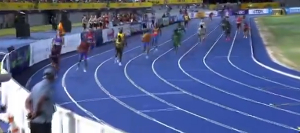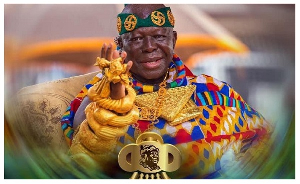- Home - News
- TWI News | TV
- Polls
- Year In Review
- News Archive
- Crime & Punishment
- Politics
- Regional
- Editorial
- Health
- Ghanaians Abroad
- Tabloid
- Africa
- Religion
- Election 2020
- Coronavirus
- News Videos | TV
- Photo Archives
- News Headlines
- Press Release
General News of Tuesday, 27 May 2003
Source: Chronicle
Quality Grain Detainees Seek Release
An Accra High Court will today continue hearing the ex-parte application filed by the Law Trust Company for leave to issue writ of Habeas Corpus directed at the director of prisons, Mr. Richard Kuuire, to produce Messrs Ibrahim Adam, Kwame Peprah and George Yankey.
The solicitors of the three persons are seeking an explanation from Mr. Kuuire why their clients should not be released from prison custody as well as the basis for their continued detention.
The case was first called on Monday, last week, but after the lawyers had argued their cases out, the presiding judge adjourned the case to today.
It could be recalled that on April 28, this year, the Fast Track High Court in Accra presided over by Justice Dixon Kwame Afreh sentenced Messrs Adam, Peprah and Yankey to various terms of imprisonment on the charge of conspiring to willfully cause financial loss to the state.
In an affidavit accompanying the writ filed at the court on May 5, this year, the detainees argued that their purported conviction and sentence by Justice Afreh's court was null and void because the offence for which they were punished was not defined in any written law, contrary to Article 19 (11&12) of the 1992 constitution, which state inter alia:
"That no person shall be punished for a criminal offence unless the definition of the offence is provided for in a written law and accordingly that it is only in cases of contempt that one can be punished for an offence for which there is no definition of the same in a written law."
The detainees further argued that Justice Afreh in flagrant breach of this requirement resorted to common law sources, English judicial precedents, books and dictionaries to find the meaning of the words "willful", "through" and "financial loss"-words, which they said are used in section 179A (3) (a) of Act 29 without corresponding definitions in the criminal code or in any other written law of Ghana.
"The particulars of the said section 179A (3) (a) is not defined in the criminal code and is further not defined in any written law," the applicants said, adding that "the learned judge in his judgment did not refer to any written law defining the said section but rather resorted to text books, precedents which did not refer to any written law defining the particulars, and dictionaries to define the offence created under this section.
"This therefore provided a fertile ground for the judge who adopted his preference for a particular type of the definition of the offence and thereby infringed the strict provision of Article 19 (11&12) of the 1992 Constitution," the detainees argued.
Accordingly, the applicants also argued that the constitutional breach amounted to breaches of their fundamental human rights.










